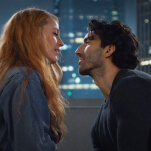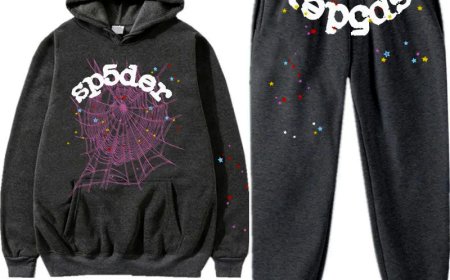It Ends With Us is “one of the most popular books of the decade,” according to this Vox article I looked at five seconds ago. Colleen Hoover has been writing for over ten years and gained ground with her self-published forbidden romance novel Slammed in 2012. Polarizing for her fluffy prose and intense subject material, she became a NYT bestselling, BookTok fan-favorite romance novelist in the latter half of the past decade. Covid lockdowns incentivized TikTok usage, and reading weepy Hoover novels became a communal experience to be filmed for an audience. Her highest-selling book to date, It Ends With Us, was prime subject matter for a film adaptation: the story is equal parts harrowing, romantic, and inspiring, while easily digestible and grit-free. Allegedly based on Hoover’s parents, who divorced when she was two and whose fraught, physically abusive relationship remains only as a vague memory for her, she wrote the book not just to entertain but to inform—which was, as Hoover confesses, unlike anything she had previously attempted.If the book is anything like the movie, I am not quite sure the story succeeds at its quasi-educational objective in advocating for domestic abuse survivors. It comes across as domestic abuse fan-fiction, creating the best-case scenario romance for Lily Bloom (Blake Lively, comfortably within her limited range) and her abusive yet penitent husband, Ryle (Justin Baldoni). There’s an easy escape, an easy catharsis; even the abuse itself is somewhat hedged, teetering between genuine violence and simple accidents without malice behind them. Directed by Baldoni himself, the creative force behind such stirring YA classics as Five Feet Apart and Clouds returns with his signature brand of romantic drama journeyman filmmaking to tackle the heavy material for this 130-minute adaptation. Sure to hit with its target audience regardless of quality (Where The Crawdads Sing is proof that the romance page-turner contingent is legion), I was surprised at how much I didn’t hate watching this in spite of its failures.Lily and Ryle have a charmed meet-cute on a Boston high-rise rooftop one night as Lily contemplates the recent death of her father, an activity which requires sitting precariously on the edge of a very tall building. The pair hit it off instantly, but Lily is unwilling to keep it moving on the grounds that Ryle is a serial dater, not a relationship guy. Still, fate has other plans for the aspiring florist (yes, Lily Bloom loves flowers; it’s so self-admittedly twee it makes you want to pull your fingers off) and the chiseled neurosurgeon. The pair meet a second time after Lily unknowingly hires Ryle’s eccentric sister Alyssa (Jenny Slate) to help Lily at the flower shop she’s in the process of opening in downtown Brooklyn. A will-they-won’t-they dynamic emerges: Ryle is intent on winning Lily’s affections, while Lily skirts his advances, no interest in getting her heart broken by a playboy. One day, though, Ryle admits to Lily and Alyssa that what he feels for Lily is “different” than what he’s felt for the girls he’s merely toyed with before. Those are the magic words Lily needed to hear to embark upon a too-good-to-be-true romance.Of course, Ryle has a hidden temper, bread-crumbed in his first meeting with Lily. He’s prone to brief fits of rage in which it seems like he isn’t in complete control of his body. The same morning Lily tells Ryle she loves him. he flings his arms around and whacks her in the face as he struggles with a burnt frittata. In the chaos of the moment, it comes across like an accident. Even a stairwell fight—caused by jealousy over Lily’s rekindled connection with a high school fling—that ends with Lily literally falling down the stairs is presented as a mishap in the heat of the moment rather than an intentional act of harm. It’s all deliberately framed in order keep Ryle sympathetic, even after a fairly harrowing attempted rape scene. But after that climactic act of violence, Lily has no issues with escaping from Ryle. She flees almost effortlessly and drives off in her car, enduring nothing more from her ex aside from pleading messages for her to come home. She seeks shelter with the aforementioned high school romance, Atlas (Brandon Sklenar), their young love shown in flashbacks. Atlas was a formerly homeless boy Lily once fed and clothed, and who was ultimately subjected to her own father’s violent outbursts. Now the head chef and owner of a prosperous new restaurant, kind-hearted Atlas becomes Lily’s chance to break the cycle of domestic violence with her own daughter.It Ends With Us is too inoffensive to be truly, outrage-inducingly offensive. The milquetoast portrayal of abuse still includes a squirmy sequence of sexual assault, which avoids being overly exploitative while refusing to pull away from it. But everything else is far too clean and calm. Lily endures virtually zero obstacles in separating from Ryle, including full-throated support from Ryle’s sister, who admits she hopes Lily can forgive him while urging her to never go back to him. To receive such boundless support seems antithetical to everything we know about survivors of domestic abuse who come forward with their experiences. But as a story meant to instill hope instead of hammer us with the ugliness of reality, It Ends With Us operates as feel-good escapism for women sick of a society which punishes and mistreats victims. In It Ends With Us, the victim is triumphant over her abuser, even if her path to recovery is obstacle-free and her abuser is very willing to let her go.Naturally this all feels dishonest, cloying, and clumsy, as Baldoni’s directorial prowess can’t match that of a halfway decent HBO series. Lively—whose husband Deadpool has kindly allowed her out of the house to pursue her own career again—excels at this type of soft-spoken non-personality, first seen in her performance as Serena van der Woodsen on Gossip Girl. Baldoni is equally sterile, almost too handsome to take seriously. Both leads are so bland and entirely unsexy in their chemistry that their romantic scenes together are instead just embarrassing, and the movie commits the same confounding sin as Twisters in not even allowing Lily and Atlas a triumphant concluding lip-lock.Still, I was rarely bored and consistently curious to see where the story would go, even if I was mostly just interested to see how tone-deaf things could become.While it never quite reaches the ridiculous heights that I imagined it might, It Ends With Us still concludes with the lead character saying the movie’s title out loud. There are worse and more mind-numbing portrayals of domestic abuse out there, but is it helpful to offer up a pipe dream, double-acting as a trauma fantasy for eager voyeurs?Director: Justin BaldoniWriter: Christy HallStarring: Blake Lively, Justin Baldoni, Brandon Sklenar, Jenny Slate, Hasan MinhajRelease Date: August 9, 2024















![Noots Focus Reviews [Truth Exposed 2025]!](https://news.bangboxonline.com/uploads/images/202501/image_430x256_678e3b94881a1.jpg)
![Vivalis Male Enhancement: The Must-Know Ingredients [2025 Update]](https://news.bangboxonline.com/uploads/images/202501/image_430x256_678e3b54e396c.jpg)







